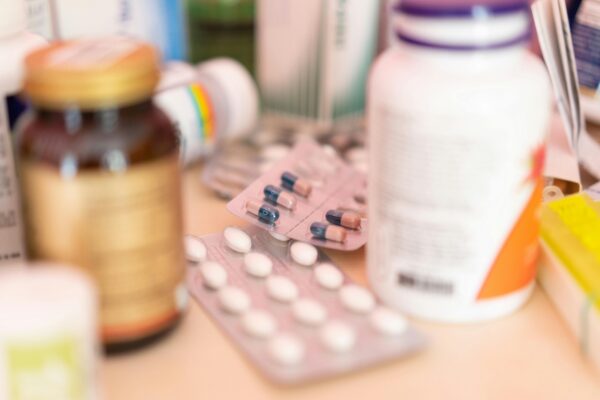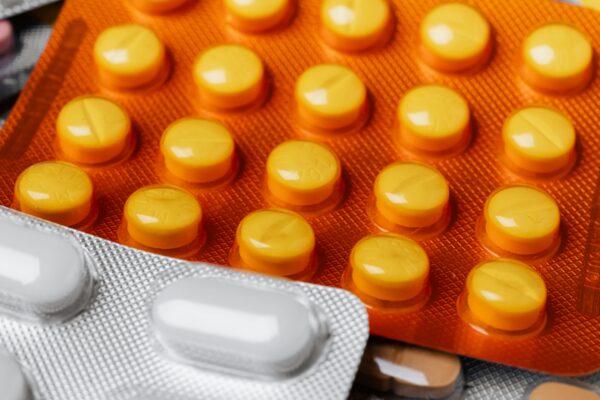When it comes to addressing erectile dysfunction (ED), the last thing any man wants to hear is that his medication could be part of the problem. For those taking nortriptyline, a commonly prescribed medication for depression and chronic pain, this concern is more common than you might think. Let’s break it down, man to man, and get to the bottom of how nortriptyline might be playing a role in your bedroom blues—and more importantly, what you can do about it.
- What Is Nortriptyline?
- How Does Nortriptyline Contribute to Erectile Dysfunction?
- How Common Is Erectile Dysfunction With Nortriptyline?
- Signs That Nortriptyline May Be Affecting Your Sexual Health
- What Can You Do About It?
- Can You Still Take Nortriptyline Without Sacrificing Your Sex Life?
- Why Ignoring the Problem Isn’t an Option
- When to Seek Help
- Conclusion: Don’t Let Nortriptyline Define Your Bedroom Life
- Studies, Sources, and Links
- FAQs: Nortriptyline and Erectile Dysfunction
- Question: Can nortriptyline cause erectile dysfunction?
- Question: How common is erectile dysfunction with nortriptyline?
- Question: Can I prevent erectile dysfunction while taking nortriptyline?
- Question: Are there alternatives to nortriptyline with fewer sexual side effects?
- Question: What should I do if nortriptyline is affecting my sexual health?
- Question: Can lifestyle changes improve erectile dysfunction caused by nortriptyline?
What Is Nortriptyline?
Nortriptyline belongs to a class of medications known as tricyclic antidepressants (TCAs). It’s often prescribed for conditions like:
- Depression
- Chronic nerve pain
- Migraine prevention
- Sleep disorders
It works by boosting levels of neurotransmitters like serotonin and norepinephrine in your brain, helping you feel more balanced and less stressed. While that sounds great, TCAs like nortriptyline aren’t free from side effects. Among these side effects, erectile dysfunction often rears its ugly head.
How Does Nortriptyline Contribute to Erectile Dysfunction?
Erectile dysfunction while on nortriptyline is largely due to its impact on the central nervous system (CNS). Here’s how it plays out:
- Neurotransmitter Imbalance: Nortriptyline alters the levels of serotonin and norepinephrine. While this can improve mood, it may also reduce sexual desire and performance.
- Hormonal Changes: Some studies suggest that TCAs can interfere with testosterone levels, which are critical for maintaining a strong libido and healthy erections.
- Blood Flow Reduction: Nortriptyline can cause vascular side effects like low blood pressure, which impacts blood flow to the penis—a key factor for achieving and maintaining an erection.
- Delayed Nerve Signals: Since nortriptyline affects the nervous system, it can dampen the sensory signals required for sexual arousal and response.
How Common Is Erectile Dysfunction With Nortriptyline?
Here’s the kicker: not every man who takes nortriptyline will experience erectile dysfunction, but it’s not exactly rare either. Studies indicate that sexual side effects from TCAs occur in about 30-50% of men, with ED being a frequent complaint. Other issues can include:
- Decreased libido
- Difficulty achieving orgasm
- Reduced semen volume
Signs That Nortriptyline May Be Affecting Your Sexual Health
Recognizing the problem is half the battle. If you’re dealing with any of these symptoms, it might be time to evaluate your medication:
- You notice a decline in your morning erections (that’s your body’s natural performance check).
- It feels impossible to get or maintain an erection during intimacy.
- You’ve lost that spark of desire for your partner.
- You feel frustrated or anxious about your sexual performance.
What Can You Do About It?
If you suspect nortriptyline is behind your ED, here’s a game plan:
1. Talk to Your Doctor
This is the first and most important step. Your doctor can assess whether nortriptyline is the true culprit and discuss alternatives. Sometimes, a dose adjustment or switching to a different medication can make all the difference.
2. Consider Alternative Medications
There are other antidepressants and pain management medications that come with a lower risk of sexual side effects, such as:
- Bupropion (Wellbutrin): Known for its minimal impact on libido.
- Selective Serotonin Reuptake Inhibitors (SSRIs): Certain SSRIs may have milder sexual side effects compared to TCAs.
3. Lifestyle Changes to Boost Sexual Health
Simple changes in your routine can have a surprisingly big impact on reversing ED:
- Exercise regularly: Cardio and weight training improve circulation and boost testosterone levels.
- Eat a balanced diet: Focus on foods rich in antioxidants, omega-3 fatty acids, and zinc.
- Reduce stress: Mindfulness, meditation, or even a hobby can work wonders.
- Quit smoking and limit alcohol: Both are notorious libido killers.
4. ED-Specific Treatments
If nortriptyline is unavoidable but ED persists, consider these:
- Phosphodiesterase type 5 inhibitors (e.g., Viagra, Cialis): These drugs enhance blood flow to the penis, making erections easier to achieve.
- Testosterone replacement therapy (TRT): If low testosterone is part of the problem, TRT could be a game-changer.
- Therapy or counseling: Psychological support can address any mental blocks contributing to ED.
Can You Still Take Nortriptyline Without Sacrificing Your Sex Life?
The short answer is yes—with a few adjustments. Many men manage their sexual health effectively while on nortriptyline by working closely with their doctors, making strategic lifestyle changes, and addressing the issue head-on.
Why Ignoring the Problem Isn’t an Option
Let’s be real: struggling with ED can mess with your confidence, your relationships, and your overall quality of life. Ignoring it won’t make it go away. In fact, unchecked ED can lead to psychological effects like anxiety or depression, which can create a vicious cycle.
When to Seek Help
If you’re experiencing ongoing issues with ED, don’t hesitate to:
- Reach out to your healthcare provider.
- Consult a urologist or sexual health specialist.
- Join a support group or talk with other men who’ve faced similar challenges.
Conclusion: Don’t Let Nortriptyline Define Your Bedroom Life
We get it—talking about ED is uncomfortable. But here’s the thing: you’re not alone, and there are plenty of solutions out there. Whether it’s switching medications, making lifestyle changes, or exploring ED treatments, the right approach can bring your confidence roaring back.
So, take control. Don’t let a little pill steal the show in your bedroom. After all, you deserve to feel like the king of your castle—both in and out of the sheets.
Studies, Sources, and Links
We’ve compiled credible studies and reliable sources to help you dig deeper into the relationship between nortriptyline and erectile dysfunction. Whether you’re looking for clinical insights or general advice, these references can offer further clarity.
Clinical Studies
- Impact of Tricyclic Antidepressants on Sexual Function
- A study published in The Journal of Clinical Psychiatry highlights the prevalence of sexual side effects, including ED, among men taking TCAs like nortriptyline.
- Link to study
- Nortriptyline and Testosterone Levels
- Research in Endocrinology Today explores the potential hormonal effects of TCAs, noting a possible link to decreased testosterone production.
- Link to research
- Erectile Dysfunction and Antidepressants: Mechanisms and Treatments
- Published in Urology Reports, this study examines how antidepressants, including nortriptyline, impact blood flow and nerve function associated with erections.
- Link to article
Educational Resources
- Managing Sexual Side Effects of Antidepressants
- A resource from the American Psychiatric Association offering practical tips for patients experiencing ED as a side effect of antidepressant use.
- Visit APA Website
- Lifestyle Interventions for Erectile Dysfunction
- Harvard Medical School provides a comprehensive guide to natural and medical solutions for addressing ED, including those related to medications.
- Read more at Harvard Health
Supportive Tools
- Drug Interaction Checker
- Ensure nortriptyline doesn’t interact with other medications you’re taking.
- Try the checker at Drugs.com
- Erectile Dysfunction Risk Assessment
- A free tool to assess your ED risk based on factors like age, medications, and lifestyle.
- Access the tool
Specialist Insights
- Talk to a Urologist Online
- Connect with certified urologists for a confidential discussion about ED symptoms.
- Visit Healthline Telehealth
- Testosterone and Men’s Sexual Health
- Mayo Clinic offers a detailed overview of testosterone’s role in sexual health and how to address imbalances.
- Read at Mayo Clinic
Community and Support
- Online Forums for Men’s Health
- Share your experiences and get advice from others dealing with similar issues.
- Join the Men’s Health Forum
By exploring these resources, you can arm yourself with the knowledge and tools needed to make informed decisions about your health.
FAQs: Nortriptyline and Erectile Dysfunction
Question: Can nortriptyline cause erectile dysfunction?
Yes, nortriptyline can cause erectile dysfunction as a side effect. It affects the central nervous system, blood flow, and hormone levels, all of which are crucial for sexual performance.
Question: How common is erectile dysfunction with nortriptyline?
Erectile dysfunction is a reported side effect of nortriptyline, with sexual dysfunction affecting 30-50% of men taking tricyclic antidepressants.
Question: Can I prevent erectile dysfunction while taking nortriptyline?
Prevention may involve lifestyle changes like regular exercise, a healthy diet, and stress management. Consulting a doctor for potential dose adjustments or alternative medications is also recommended.
Question: Are there alternatives to nortriptyline with fewer sexual side effects?
Yes, medications like bupropion or selective serotonin reuptake inhibitors (SSRIs) may have fewer sexual side effects. Speak to your doctor about finding the right alternative for your needs.
Question: What should I do if nortriptyline is affecting my sexual health?
If nortriptyline is impacting your sexual health, consult your healthcare provider. They may suggest a dose adjustment, switching medications, or introducing treatments specifically for erectile dysfunction.
Question: Can lifestyle changes improve erectile dysfunction caused by nortriptyline?
Absolutely. Regular exercise, a nutrient-rich diet, quitting smoking, reducing alcohol intake, and managing stress can help mitigate erectile dysfunction, even while on nortriptyline.
This article is written to inform and support, but it’s not a substitute for professional medical advice. Always consult your healthcare provider for personalized recommendations.





